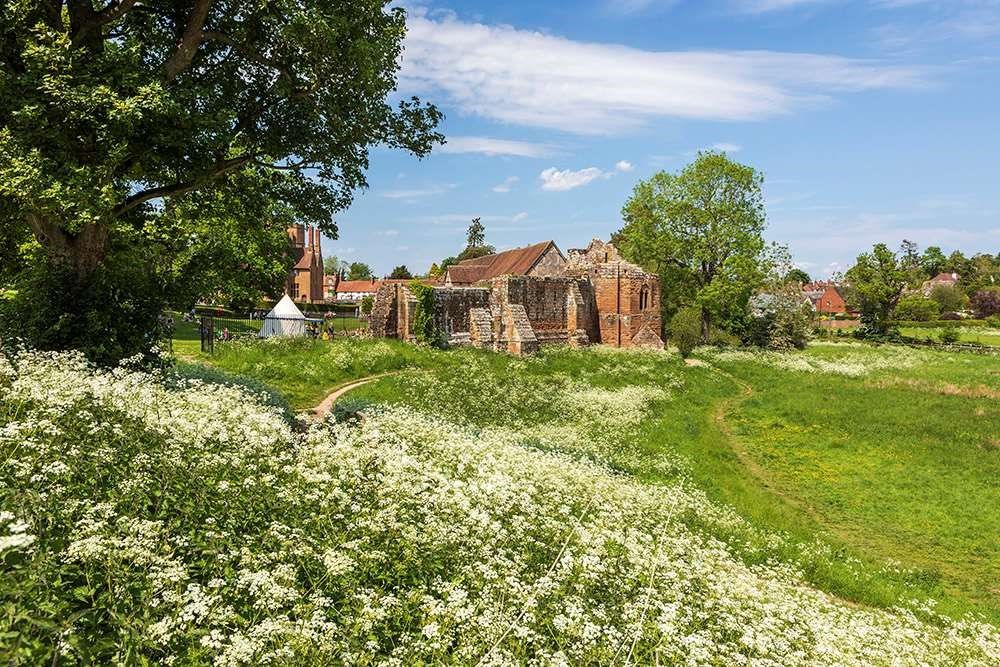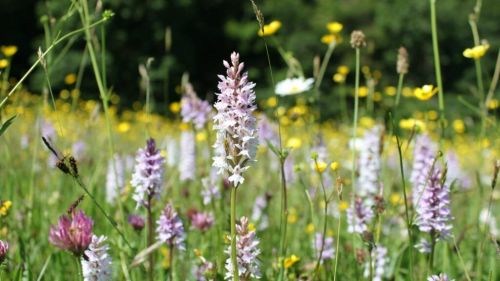Meadows to be created or enhanced across 100 English Heritage sites
Posted on
There’s very exciting news from English Heritage. They are creating and/or restoring 100 wildlife meadows for King Charles III’s Coronation!
In the UK, we have lost about 97% of our wildlife meadows since the 1930s and the arrival of post-war modern farming practices. Before this, meadows, road verges and lawns would have had far more diverse flowers and plants than we have today.
Meadows require cutting for hay and English Heritage are going to enhance and create 100 meadows at their palaces, prehistoric stone circles, abbeys and castles! This will establish flower-rich grasslands across England. It will restore the lost meadows and enhance those already in existence. This is a pledge from English Heritage to King Charles III.

100 sites will have meadows restored or enhanced!
The King has done his own wildlife meadow at Highgove, and Boscobel now has a wildflower meadow.
This will help bees and butterflifes and all sorts of insects and birds, but it will also help people, as grasslands that are in good shape are able to tackle pollution and lock atmospheric carbon below ground. It will mean there are more natural spaces at the heart of the English Heritage properties that are one of the 100; visitors will be able to get an idea of what it was like for those who lived there before.
English Heritage are hoping that local communities will get involved too and help transform their local heritage sites into meadows rich in flowers, thereby improving the quality and diversity of local grasslands.

Plantlife are involved in this amazing initiative -
find out about #NoMowMay campaign here
The plan is to source seed from meadows in the area to make sure that viable local species of wildflowers can be introduced to each site. This should also mean that a special range of landscapes on with different soils and geology will be produced, such as damp acid grasslands and dry chalk grasslands.
Plantlife are supporting this wonderful transformation by providing expertise, resources, skills development training and the opportunities to change knowledge as things progress.
Amongst those sites on the list are Boscobel in Shropshire (famous as a place where Charles II hid from the Cromwellians after the Battle of Worcester), Down House in Kent (home of Charles Darwin), Stonehenge in Wiltshire, and Barnard Castle in County Durham.
Add a comment: